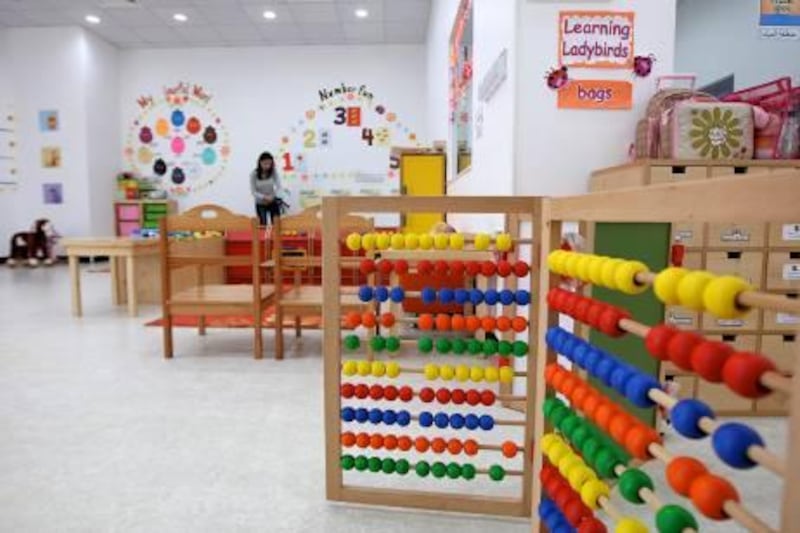DUBAI // Parents who delegate child care to untrained maids and nannies risk their children’s development at a crucial early age, experts have warned.
“The child-at-home model for children below the age of four is common in the Gulf states because of the availability of low-paid nannies who typically have no professional qualifications in child care,” said Juman Karaman, head of projects for the Knowledge and Human Development Authority and co-author of a policy brief on the issue for the Dubai School of Government. Less than five per cent of Emirati children in Dubai are enrolled in nurseries.
“The development of the child’s first language is critical during the first year of life, and parents must understand the influence of maids who speak in a different language,” Ms Karaman said.
Research in 2005 published in the Journal of Childhood Research, indicated that 58 per cent of children under the age of three in the region spend 30 to 70 hours a week with domestic workers.
Hala B. Roumani, principal of the Gulf Montessori nurseries in Dubai and author of the 2005 study, said there was an economic benefit to parents using their domestic help as child care. “A maid is a very economic alternative and also provides a long list of additional services,” she said.
Ms Karaman said various studies on brain science indicate the physical, emotional, social, cognitive and independent learning of children is at its peak in the first few years of life.
“Rapid development of the brain happens in the first three years and is crucial for skills acquisition,” she said.
Most Emirati mothers believe children do not need structured early childhood education, said Moza al Shoomi, director of the Child Department at the Ministry of Social Affairs.
“How can the children gain the necessary skills from house help who are young girls and are not qualified?” she said. “Some mothers also rely on extended family to look after their children but at that age they also need to have more interaction with peers so that they can develop social skills as well.”
Afra al Qamzi, a young Emirati mother who relies on her domestic help and her mother-in-law to take care of her two children aged three and 18 months while she is at work, said access to quality childcare services was a serious concern.
“I am dependent on my maid for everything, right from the children’s morning shower to breakfast, giving them lunch and putting them to bed,” she said. “This is the best option because the private nurseries are very expensive and I am not sure about the quality either.”
Ms Qamzi said her children spend a lot of time with the maid. “I am trying to reduce this because I have noticed they do not find it interesting to sit with me any more,” she said.
A law passed in 2006 says federal and municipal departments must set up creches if they have more than 50 female employees, or if all their female employees have a total of more than 20 children below the age of four.
“The lady employees must ask for this because it is a law and it is their right,” Ms al Shoomi said.
“Our plan for 2011 to 2013 is to work towards activating the law. We will do a lot of media marketing and meet the department to iron out the challenges.”
aahmed@thenational.ae






